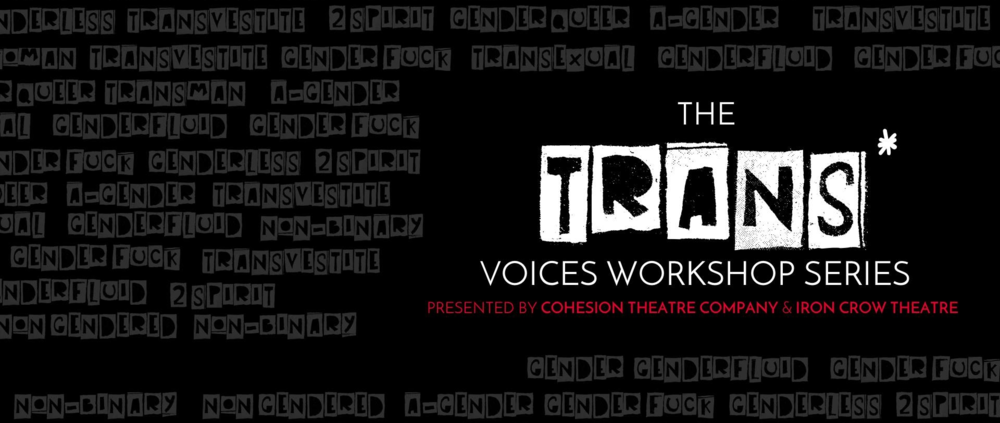In the third installment of a series of interviews with the cast and directors of Twelfth Night, a co-production between Cohesion Theatre Company and Iron Crow Theatre appearing in the Trans* Voices Workshop Series, TheatreBloom sits down with actors Logan Davidson, Jane Jongeward, Danielle Vitullo, and Dana Woodson to hear about their experience with the production.
If you could give us an introduction of who you are and who you’re playing in the show as well as a little bit of your performance background from the area that would be a great start.
Jane Jongeward: Hi, I’m Jane Jongeward. I didn’t come to planet earth yesterday but I did basically come to Baltimore yesterday. I’m playing Orsino.
Dana Woodson: I’m Dana Woodson, I’m playing Antonio. I was a man before in my last production. I was Agamemnon in The Pretties with Glass Mind Theatre. Before that I was in an ensemble devised work with Sphynx and Co. We did a traveling tent show.
Danielle Vitullo: I’m Dani. I play Viola and the officer. And you probably won’t recognize me because I’ve been doing mostly high school theatre. I’m 17.
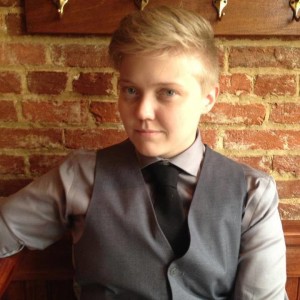
Logan Davidson: I am Logan Davidson. I was last in a Charm City Audience Choice show, That Way Madness Lies. And before that I was in BOOM’s Macbeth. I played Macduff. Wait, did I say who I was playing? I’m playing Viola. And Sebastian.
I’m sorry, but didn’t Dani just say she was playing Viola?
Logan: You’re just going to have to see the show.
Dani: So I play Viola—
Logan: When Viola is Viola, but when Viola puts on the mask and attire to become Cesario, I play Cesario. Does that make sense? It’s super queer and super good.
Dani: You’ll just have to watch.
How did you guys get involved with this production?
Jane: I auditioned.
Dana: We all auditioned.
Dani: I’ve actually been involved with Chesapeake Shakespeare Company, that’s how I know Alice (Co-Founder of Cohesion Theatre Company Alice Stanley), so it was actually through talking to Alice that I was encouraged to get involved with the shows here and audition. I do love Shakespeare, so of course I wanted to be a part of their Shakespeare.
Logan: I saw Cohesion did really well with their first season. I had a few friends who participated in their open casting call for season two. I only do Shakespeare, but now actually I’m going to be in the third Trans* Workshop Series play in March, Aphorisms on Gender. That will be my first non-Shakespeare since college. How do people memorize those non-Shakespeare style lines?
Dana: I also auditioned for the full season and was asked to be a part of this one.
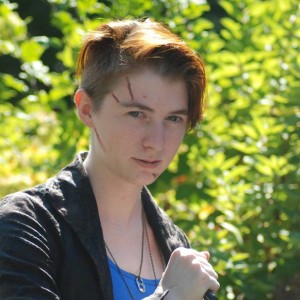
Jane: I have a bunch of friends here because I used to work with Chesapeake Shakespeare, and I was also working with the American Shakespeare Center, and was told “hey when you’re finished with that you should come up to Baltimore and be in this” because I too am also just a Shakespeare all the time person.
What would you say working with a show like Twelfth Night, which comes with its own classic iconicism, under the lens of a Trans* Voices Workshop has taught you about yourselves as individuals, as performers? How is this resonating with you?
Jane: I think it’s very wonderful. I grew up in an area where they had the ASC. So I grew up watching a lot of cross-gender cast shows. It never occurred to me that this would be strange. When I went to college and started seeing other people’s theatre and discovering that there is a world outside of Stanton, it was very abrupt for me to suddenly discover that this was not common practice. “What do you mean I can’t play male roles?” I love seeing a Shakespeare play, which is very specifically doing strange things with gender to begin with, I love embracing that and making people ask questions and making people feel like it’s okay. I love that, especially for people like me because I don’t exactly know what my gender is or how to define it. This is a wonderful place for me to present this to other people and they too can question it with me, and along the way I get to learn more about myself. I love not always having to play women. I hate having to play women.
Logan: I feel very similarly. While I think that women should always be given the opportunity to play whatever role they want, it has always bothered me when a company says “A woman is playing this man’s part because they’re a great actor.” That’s great that they’re a great actor, but you’re also making a clear statement to the audience about gender and sexuality. That may not be direct but it’s always a subtext when you’re watching it so why not just go there? I love this opportunity because I— well I guess I don’t hate playing women, playing women is okay— but it’s not always a character or a gender that I feel comfortable with. But based on how people see and perceive my body, I end up in those roles that I don’t always believe I am the best fit for. That’s why it’s awesome to have this opportunity to actually explore the character and have fun. It’s even more great because we have all these other people on the same page. We’re all acknowledging that it’s going to be super queer and super cool.
Dani: I personally am a fan of “queering the text.” You know, taking these old plays that have been around for centuries, putting new interpretations on them and bringing them into a modern society. A lot of our culture has changed between Shakespeare’s times and now, so we’re taking these old stories and putting new spins and new interpretations on them. I really appreciate that. In a lot of settings where you do theatre it’s not always encouraged for you to queer the text.
Dana: I have played male characters before. But this one is the first one for me where there is question of who they love. This character loves another male character, which has helped me in reconstructing my own ideas of masculinity. It’s helped me think about how I am trying to present a masculine-presenting character. For me, playing a man or playing a woman isn’t always about thinking about the gender of the character, unless the gender of the character is supposed to be or make a statement. I feel like in this case, because of how fluid so many of the characters are, it doesn’t feel like I have to put forth a man or try to decide what it means to be a man. This is just showing the truth of what it means to be this character. It’s been a fun process.
Jane: I think by using Elizabethan and Jacobean plays and presenting them in such a gender-queer manner, it’s very clearly telling a group that is often marginalized that “you are a part of a very important piece of English literature. You are a part of this culture and a part of us as a whole.”
Logan: This universal love thing, for such a marginalized section of society, we’re moving forward to embrace that. “Love this as much as we do. Put your stamp on it too.”
What do you think people will take away from seeing this particular production of Twelfth Night?
Jane: I think at times they’re going to be really confused. Viola, Cesario, Sebastian— when I was originally on stage with you guys— and it is amazing and wonderful and very different from what most people are used to seeing in that scene. I think at times people in the audience are going to have that confusion, but I think that’s kind of the point. We’re trying to show you just how complex this portion of human identity is. It’s not just two things. You don’t always know. Or sometimes you do know but it’s really hard to get people to understand. So I hope that people will jump off from the show and realize that this is exactly what happens and how people feel in real life when it comes to gender and identity.
Logan: What I really hope is not to just have a good performance, but as far as the Baltimore Theatre Community in general goes? I want other artists to come in, see the show, and say “Oh, I can have a queer person, or a Trans* person play a character or a role and it’s fine.” That it is not going to be as weird or out of place as they thought it might be. Along that same line, I want Trans* and gender-queer artists to see the show and say “Oh, I should be out there auditioning, there are parts for me, even in Shakespeare.” I hope this starts up a conversation on inclusion across the community in general.
Dani: They took everything I was going to say.
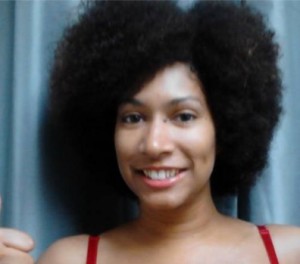
Dana: I hope that especially with the gender-bending that we have that this is going to make the audience look more so at the characters themselves and who they are rather than at their gender. Identity is important but I think people get caught up so often in trying to identify other people when instead you should just be looking at who the person is, what their experience and personality it. That’s way more important than making sure they’re dressed like a certain gendered-category.
Logan: See, that’s what’s awesome. I don’t know how much gender-bending is actually happening in this production so much as people are just playing the characters they identify with. I think as far as gender-bending goes it’s super limited in this. I guess we have ten people and I certainly don’t feel as if I’m gender-bending a character. It’s awesome.
Jane: Orsino seems to know his gender. I’m not sure if I’m bending it. I sort of want to carry on this conversation later to get more into that.
What has been the most challenging element of taking on this production for you guys?
Logan: The memorizing all of your lines before coming in? That was pretty daunting. The Trans* thing? That was pretty daunting. But the most daunting thing for me? I’ve never been cast in a lead in a Shakespeare performance before. And immediately I was like “Oh no! What have I gotten myself into?” So not only have I memorized the most amount of lines I’ve ever had to memorize in a Shakespeare performance, but we’ve also dove into this very extreme thing. Extreme because we’ve really only had four rehearsals. But it’s awesome.
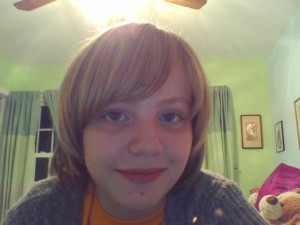
Dani: I feel kind of similarly mostly because I’m the youngest person in the cast. As far as I know I’m the youngest person who has been cast in any of the shows with Cohesion this season, so that was daunting to me. I started off being cast as Curio and the Police Officer. I was not originally Viola. Logan was Viola and Sebastian. But then they emailed me and said, “Hey, can you play Viola for that last scene where they’re both on stage?” And then they said “Hey, can you also be Viola in that first scene?” And then I just became Viola. I happened into the role. It’s been daunting for me because it’s my first real production with a professional theatre.
Logan: That’s kind of my fault.
Dani: What?
Logan: We’ll have a long conversation about that later.
Dani: How dare you…
Logan: No, it’s awesome. I’ll buy you a lot of coffee.
Dani: Haha. Okay. Oh! The other thing is that I am not Trans* so it’s been kind of a learning experience for me, trying to find this interpretation within this character who is dealing with these issues, when these are not issues that I have dealt with. There was one part where I was really confused about until Logan broke down a completely different interpretation then what I had been looking at.
Dana: Definitely the very short rehearsal process has been the most daunting for me.
Logan: The original actors?
Jane: Shakespeare?
Dana: Right, but I mean, who does that nowadays? Us, apparently. But also, I think I’m the only person here who doesn’t do Shakespeare very often? So trying to really get into the text and learn it on my own knowing we were having such a limited rehearsal period has been interesting to say the least. I did initially, upon being cast, have a bit of an aversion? Hesitation? Concern? I had reservations about being a cis-person in a production that is claiming to give voice to Trans* people. I don’t necessarily know where I fit into that in a Trans* Voices Workshop, I worried that it was not really my place. I had to make my peace with that. Having a cis director, and other cis people in this, I was a little worried at first that it was going to be a production of a bunch of cis-people patting themselves on the back for giving voice to Trans* people. But the more we started working on it, the more I saw that we had Trans* people involved all throughout and realized that this is not that at all.
Jane: Orsino’s misogyny has been a big struggle for me. Twelfth Night is one of my favorite plays and I’ve seen it done many times. Somehow, I’ve never noticed that. Orsino’s an idiot. And I’m always looking at him as this sweet, loveable, stupid person. So when I got the part I was so excited— “Yes! I get to be one of those crazy, over-the-top, in-love-with-love” characters. But then Phil (Director Phil Vannoorbeeck) pointed out all of these things. He does not say Viola ever, he keeps calling her Cesario, he uses very possessive language, so I have really struggled to bring that out in my performance. I don’t know how to show the audience that there is a very dark side to this character while balancing that against his own perception. When I’m playing him— obviously he does not think there is anything wrong with his opinions.
Any other thoughts on the show?
Dana: I’m excited. I hope the audience will be excited too.
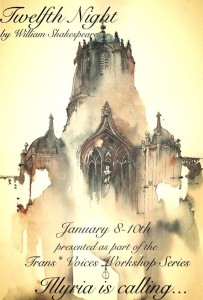
Logan: I hope that people come in and that is sparks lots of conversations and people do a lot of thinking about this, but I’m also hoping that this helps people to see that Trans* performances and queer performances do not have to be serious. There’s a little bit of thought there but it’s mostly fun. It doesn’t have to be fun.
Dani: It’s been fun for me!
Jane: I want people to come in and see a Shakespearean comedy and laugh. Then afterward they can have all of those conversations that the show inspired.
If you have to sum up this experience in one word?
Dana: Invigorating!
Jane: Bittersweet.
Logan: Cathartic.
Dani: Eye-opening.
Twelfth Night runs as a co-production with Cohesion Theatre Company and Iron Crow Theatre in the Trans* Voices Workshop Series currently playing at Church on the Square in Canton— 1025 S. Potomac Street in Baltimore, MD. Tickets can be purchased at the door or in advance online.
To read the first Interview in the No Darkness But Ignorance Series, click here.
To read the second Interview in the No Darkness But Ignorance Series, click here.

